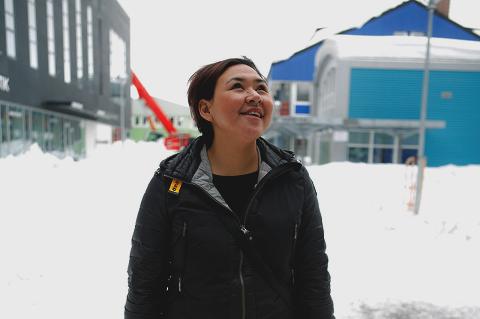 |
Canku Ota
|
 |
|
(Many Paths)
|
||
|
An Online Newsletter
Celebrating Native America
|
||
|
May 2016 - Volume 14
Number 5
|
||
|
|
||
|
Why You Probably
Shouldn't Say 'Eskimo'
|
||
|
by Rebecca Hersher -
NPR
|
||
Confused about the word Eskimo? It's a commonly used term referring to the native peoples of Alaska and other Arctic regions, including Siberia, Canada and Greenland. It comes from a Central Algonquian language called Ojibwe, which people still speak around the Great Lakes region on both sides of the U.S.-Canadian border. But the word has a controversial history. (Editor's note: And that's why it's not used in the stories on Greenland that NPR has posted this week.) People in many parts of the Arctic consider Eskimo a derogatory term because it was widely used by racist, non-native colonizers. Many people also thought it meant eater of raw meat, which connoted barbarism and violence. Although the word's exact etymology is unclear, mid-century anthropologists suggested that the word came from the Latin word excommunicati, meaning the excommunicated ones, because the native people of the Canadian Arctic were not Christian. But now there's a new theory. According to the Alaska Native Language Center at the University of Alaska Fairbanks, linguists believe the word Eskimo actually came from the French word esquimaux, meaning one who nets snowshoes. Netting snowshoes is the highly-precise way that Arctic peoples built winter footwear by tightly weaving, or netting, sinew from caribou or other animals across a wooden frame. But the correction to the etymological record came too late to rehabilitate the word Eskimo. The word's racist history means most people in Canada and Greenland still prefer other terms. The most widespread is Inuit, which means simply, "people." The singular, which means "person," is Inuk. Of course, as with so many words sullied by the crimes of colonialism, not everyone agrees on what to do with Eskimo. Many Native Alaskans still refer to themselves as Eskimos, in part because the word Inuit isn't part of the Yupik languages of Alaska and Siberia. But unless you're native to the circumpolar region, the short answer is: You probably shouldn't use the word Eskimo. |
||
|
|
|
|
||
|
|
||
| Canku Ota is a free Newsletter celebrating Native America, its traditions and accomplishments . We do not provide subscriber or visitor names to anyone. Some articles presented in Canku Ota may contain copyright material. We have received appropriate permissions for republishing any articles. Material appearing here is distributed without profit or monetary gain to those who have expressed an interest. This is in accordance with Title 17 U.S.C. Section 107. | ||
|
Canku Ota is a copyright ©
2000 - 2016 of Vicki Williams Barry and Paul Barry.
|
||
 |
 |
|
|
The "Canku
Ota - A Newsletter Celebrating Native America" web site and
its design is the
|
||
|
Copyright ©
1999 - 2016 of Paul C. Barry.
|
||
|
All Rights Reserved.
|
||
